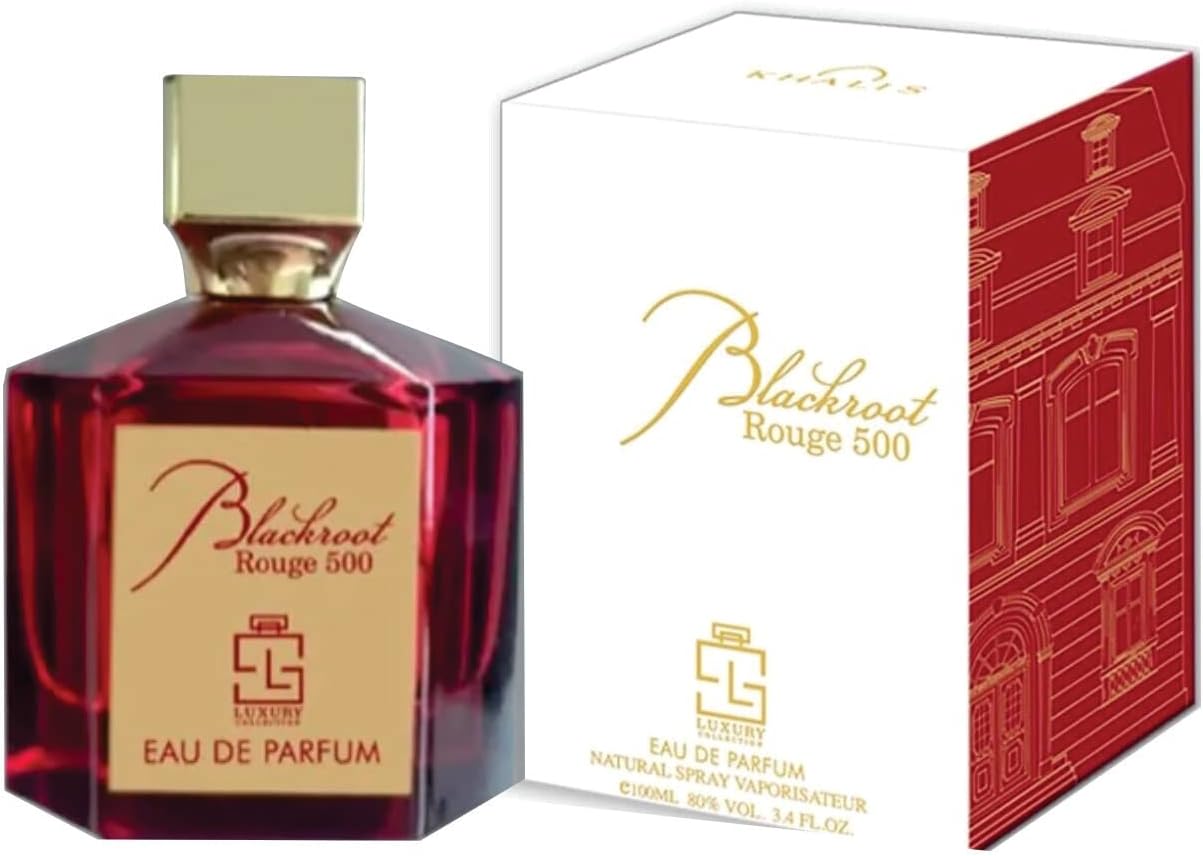
Blackroot Rouge 500 Perfume 100ml, Edp Original Perfume, Blackroot Rouge 500 Eau De Parfum For Unisex by Sapphire’s Choice
FREE Shipping
Blackroot Rouge 500 Perfume 100ml, Edp Original Perfume, Blackroot Rouge 500 Eau De Parfum For Unisex by Sapphire’s Choice
- Brand: Unbranded

Description
The actual colour of the items may appear different from the pictures shown, we try to portray the colours as accurately as possible but occasionally there may be slight differences out of our control. A great and unusual perfume, with a subtle sweetness that perfectly interacts with the salty ambergris and spicy saffron. Privee Couture Collection Velvet Desert Oud Eau de Parfum smells like a breeze through the dunes of a desert. Privee Couture Collection Tuscan Leather is a Chypre blend of notes brings a raw, yet reserved sensuality to this original take on a classic leather scent. Perfumes with natural ingredients often smell different in batches based on the source of the ingredients, while synthetic ingredients usually have consistency in their smell and lasts longer.
Atyaab Al Oud inspired by the art of seduction and the irresistible act of getting closer, The unisex Scent is designed to elicit a hidden seductive power that envelops both gender who wears it with a captivating al.
Read more about the condition New: A brand-new, unused, unopened and undamaged item in original retail packaging (where packaging is applicable). Privee Couture Collection Gabrielle Eau de Parfum shines with intensity, inviting all women reveal their true selves, to follow their instincts by expressing their freedom and speaking their mind.
Blackroot Rouge 500 Perfume Spray is one of the famous and popular Arabian perfumes, by one of the world renowned perfume producer Khalis very pleasant, soft and long lasting perfume spray. The 103 third parties who use cookies on this service do so for their purposes of displaying and measuring personalized ads, generating audience insights, and developing and improving products.Perfumes are often designed with top, middle and base notes, and designed to smell different based on the time after application. Most purchases from business sellers are protected by the Consumer Contract Regulations 2013 which give you the right to cancel the purchase within 14 days after the day you receive the item. If the item comes direct from a manufacturer, it may be delivered in non-retail packaging, such as a plain or unprinted box or plastic bag.
Oud Ispahan blends sweet, fresh rose with soft oud notes to make for a truly warm and welcoming scent. A unique fragrance, based on ingredients which have prized in the East for thousands of years, Royal Oud is ambiguous and mysterious; earthy, exotic and sensual in turn, enhanced by base notes of legendary, costly o. As the fragrance settles, a warm and smoky base emerges, leaving a lasting impression of sensuality and mystery.
Blackroot Rouge by Khalis is a pleasant, ever-changing and evolving fragrance that starts with a burst of summer fruits (currants, strawberries, raspberries. Various versions have evolved over the years, sometimes by accident, sometimes on purpose (injected humour and the like). Ideal for daily wear, this perfume delivers exceptional value and proves to be a standout choice, rivaling even the most high-end brands. Luminous and sophisticated, Backroot Rouge 5oo lays on the skin like an amber, floral and woody breeze. Khalis Blackroot Rouge 500 Eau De Parfum is a bold and captivating fragrance that exudes confidence and charisma.
- Fruugo ID: 258392218-563234582
- EAN: 764486781913
-
Sold by: Fruugo
